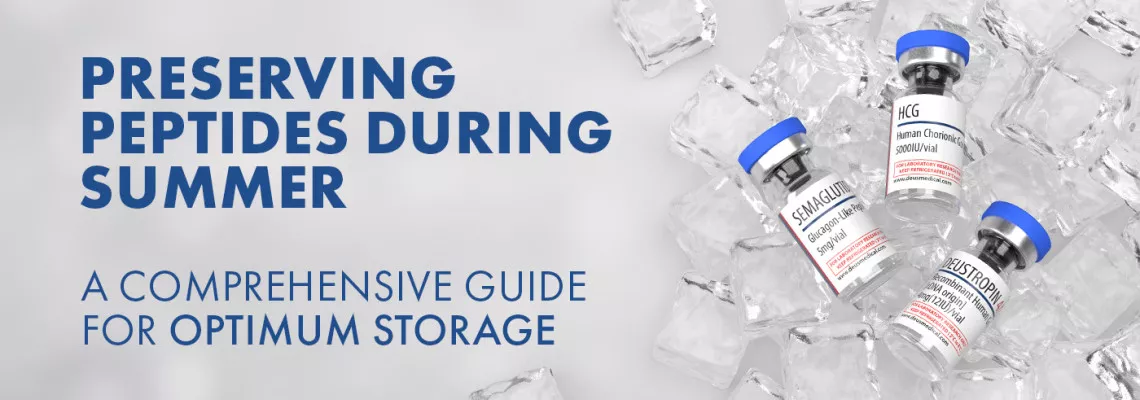19 Jun


Preserving Peptides during Summer: A Comprehensive Guide for Optimum Storage
It's a well-established fact that peptides, short chains of amino acids, are integral in numerous research and medicinal activities. However, these vital bioactive compounds are also particularly sensitive to incorrect storage conditions, especially during the heat of the summer months. To ensure the reliability of your peptides, it's crucial to understand the differences between preserving them before and after reconstitution and how heat can impact their stability and purity.
Pre-Reconstitution Preservation
Before reconstitution, peptides are often in a lyophilized or freeze-dried state, which makes them relatively stable and less prone to degradation compared to their reconstituted counterparts. The main goal during this stage is to prevent exposure to moisture and heat, both of which can lead to the breakdown of the peptide structure.
- Temperature Control: Lyophilized peptides should be stored in a cool, preferably refrigerated, environment (between 2°C and 8°C). In the summer months, it becomes especially crucial to maintain a consistent low temperature, avoiding fluctuations that could harm the peptides, luckily before reconstitution most peptides can hold at room temperature for 3-4 weeks, but since Summer is coming we recommend storing it in the fridge.
- Avoidance of Moisture: Moisture can initiate the breakdown of peptides even at low temperatures. Therefore, they should be stored in a dry area or with a desiccant to absorb any moisture in the storage container.
- Minimize Light Exposure: Lyophilized peptides can also be susceptible to light degradation. Store your peptides in a dark container or in an area devoid of direct light.
Post-Reconstitution Preservation
Once a peptide has been reconstituted - that is, transformed from a freeze-dried powder into a liquid solution - its stability decreases significantly. This is due to the increase in peptide concentration and the solution environment, which can enable degradation reactions.
- Strict Temperature Regulation: After reconstitution, peptides must be kept in a cold environment, typically between 2°C and 8°C or lower. During summer, you might want to consider the use of a dedicated fridge to ensure consistent low temperatures.
- Use Immediately If Possible: Once reconstituted, peptides are best used immediately to avoid potential degradation. However, if you must store them, divide the solution into aliquots. This practice reduces the exposure to air and temperature fluctuations, minimizing potential degradation each time you access your peptide solution.
